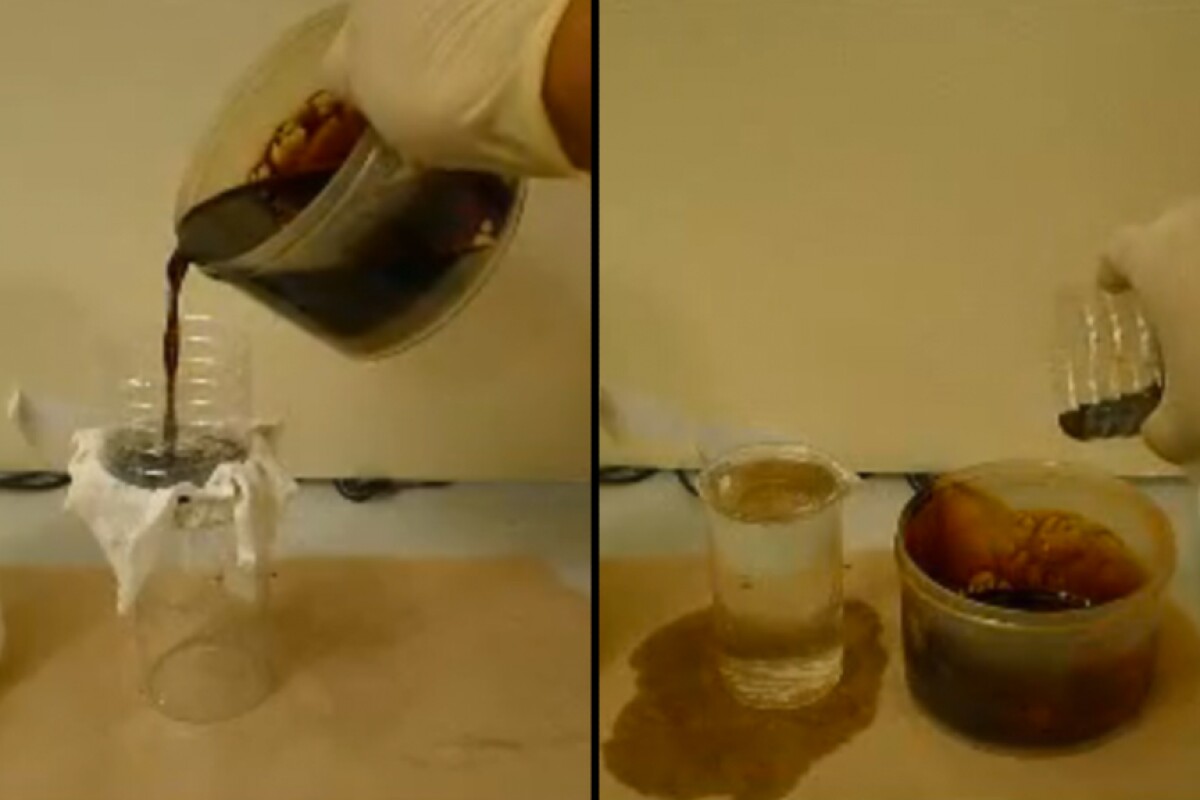With the damaged Deepwater Horizon oil well continuing to spew oil into the Gulf of Mexico there’s no shortage of suggestions coming from those concerned about the environmental disaster. We’ve already looked at a number of clean-up options, and now a University of Pittsburgh engineering professor has developed a technique that looks very promising. His filter for separating oil from water not only cleans the water, but also allows the oil to be recovered and stored for the use BP originally intended and the filter to be reused.
The technique created by Di Gao, an assistant professor and William Kepler Whiteford Faculty Fellow in the Department of Chemical and Petroleum Engineering in The University of Pittsburgh’s Swanson School of Engineering, separates oil from water via a cotton filter coated in a chemical polymer that blocks oil while allowing water to pass through.
The filter hinges on a polymer that is both hydrophilic – meaning it bonds with the hydrogen molecules in water – and oleophobic – meaning that it repels oil. When the polymer is applied to an ordinary cotton filter, it allows water to pass through but not oil. The filter is produced by submerging the cotton in a liquid solution containing the polymer then drying it in an oven or in open air, Gao explained.
For the massive oil slick off the U.S. Gulf Coast, Gao envisions large, trough-shaped filters that could be dragged through the water to capture surface oil. The oil could be recovered and stored and the filter reused. He reports that the filter was successfully tested off the coast of Louisiana and shown to simultaneously clean water and preserve the oil. A video of Gao testing his filter with oil and water samples from the Gulf of Mexico spill can be viewed below.
Gao’s research focuses on the development and application of chemical nanostructures. In 2009 he demonstrated a nanoparticle-based solution that can prevent the formation of ice on solid surfaces. The environmental disaster occurring in the Gulf of Mexico prompted him to turn his attention to developing a clean-up solution that was not only effective, but also environmentally friendly.
Gao has submitted his idea through the Deepwater Horizon Response website managed by the consortium of companies and government agencies overseeing the disaster response. If the video is anything to go by it’s definitely something they should take a close look at.
Further reading: Ocean Portal




